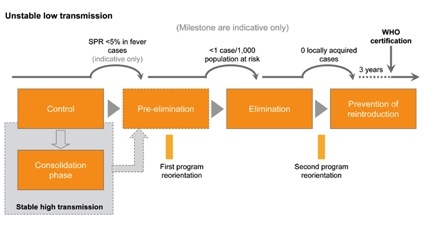Citation:
Abstract:
After outlining the history of malaria in Swaziland, this focused case study examines the implementation of rapid diagnostic tests (RDTs) for malaria in Swaziland to improve case management and to strengthen the national malaria surveillance system as the National Malaria Control Program (NMCP) aims to implement a national elimination strategy. In addition to information on RDT selection, the case details Swaziland's quality assurance program-the first of its kind in the region, the public health benefits of the immediate disease notification system for active case detection, and Simon Kunene's leadership qualities as the manager of the NMCP for 24 years. The case addresses the necessary increases in financing and human resources to support the strategy and evaluates the impact of RDTs on the strategy. Challenges the NMCP faces in achieving malaria elimination include sustaining political will, interest, and financial commitments from donors and strengthening health workforce training and RDT procurement and distribution.
Teaching Note available through Harvard Business Publishing.

Milestones toward Malaria Elimination. Source: The Global Malaria Action Plan: For a malaria-free world. Roll Back Malaria Partnership, 2008. (Exhibit 4 from "Roll-Out of Rapid Diagnostic Tests for Malaria in Swaziland" case.
Learning Objectives: To understand the role of diagnostics in a malaria elimination strategy, what it takes to effectively integrate a new diagnostic into care delivery, how leaders generate social and political capital over time, and the intricacies of managing a national disease program.
Keywords: National strategy, supply chain management, diagnostic testing strategies, malaria eradication and control